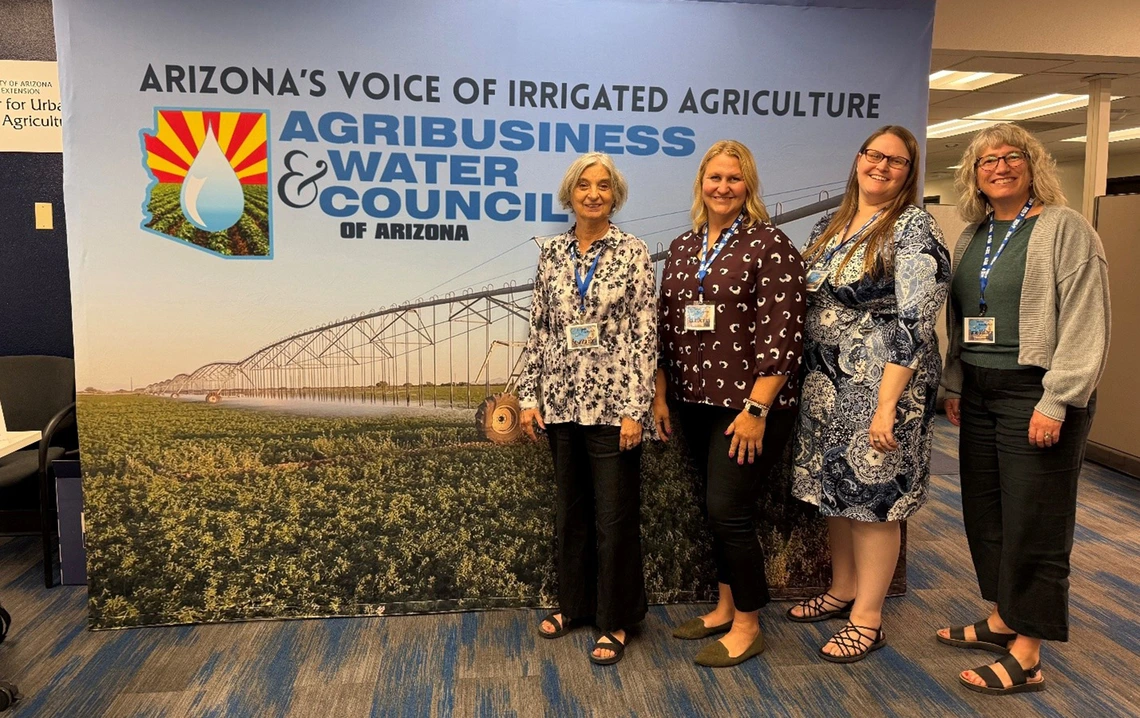WRRC Staff Attends AAWWA Colorado River Update

From left: Susanna Eden, Julia Denton, Jessie Hampton, Jamie McEvoy
On Tuesday, August 26, 2025, four WRRC staff members attended the Arizona Association of Women in Water and Agriculture (AAWWA) Colorado River Update, which was held at the U of A Cooperative Extension office in Maricopa County. Hosted and presented by women in the water industry, this conference showcased the most recent information available on the status of the Colorado River.
Current guidelines for managing Lakes Powell and Mead expire in 2026, so policymakers and other concerned parties are focusing on developing long-term post-2026 operations that will maintain the functions of the system for the many populations who depend on the Colorado River. Used by 40 million people in two countries, seven river basin states, and 30 Native American Tribes, the river serves a multitude of needs, including irrigation for much of Arizona’s agriculture—a vital component of the state’s economy and identity. Shortages may threaten the state’s economic future, especially the many communities dependent on irrigated agriculture.
Although the talks at the AAWWA event generally painted a grim picture of the river’s future—after a record-breaking low water year on top of decades of historic drought—they also offered hope. Referencing the Bureau of Reclamation’s 24-Month Study published earlier this month, multiple speakers called out the important positive impacts that previous conservation measures have had on reservoir levels at Lake Mead. Discussions also emphasized the need for everyone to pitch in and work together to ensure a secure water future.
The event provided opportunities for attendees to meet other water professionals, hear their perspectives on the water challenges we share, and learn more about the work they are doing. Speaking with agriculturalists, mining consultants, Tribal leaders, power company reps, lawyers, and elected officials allowed for greater insight into the complicated water situation affecting those dependent on the Colorado River.

